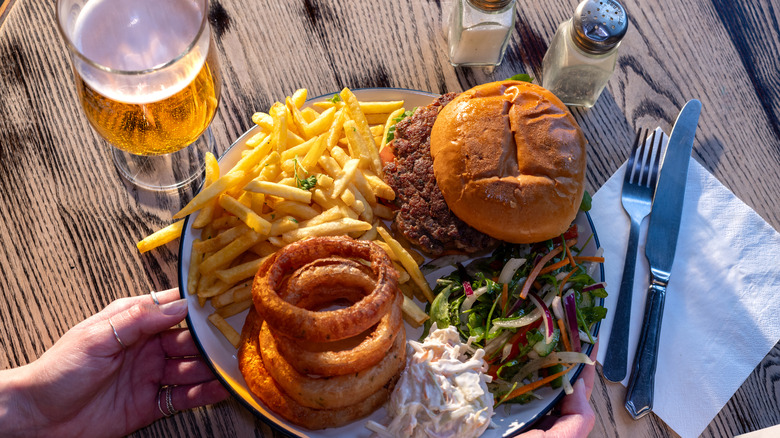Can Death Row Inmates Request Alcohol To Wash Down Their Last Meal?
From ice cream and Jolly Ranchers to a bucket of chicken from KFC, the final wishes of those facing death sentences have captivated news outlets and public attention. Though the practice of a requested final meal has an extended history, the reasons surrounding the act is less clear. Some theorize that it is a demonstration of humanity. Roman gladiators were treated to feasts the night before fights, and 18th-century inmates were permitted meals prior to their executions — or even allowed a stop at a pub.
In the United States, some condemned prisoners are served meals of their choice. While many states have restrictions on what can be served — Florida places a $40 limit on the meals, Oklahoma caps off requests at $25, and Texas has banished the practice entirely — those facing execution can have their choice of foods, except alcohol and tobacco. While in 1835, Manuel Fernandez was permitted a nip of brandy and cigars, most prisoners are not granted the same kind of luxury. The majority of requests for booze are rejected, with prisons classifying alcohol as contraband.
The decision to honor last meal requests
For those who are granted special meal requests, the final meals are typically planned a few days before the scheduled execution, should the prisoner still have an appetite before their final moments. If no meal is specified or requested, states like Georgia have a set menu, offering plates of rice and chicken, cornbread, turnip greens, dry white beans, and cooked rutabagas served with fruit punch and bread pudding to convicted offenders. In Texas, whatever food is on the menu for the rest of the prison is served, a practice stemming from an instance in which one prisoner requested a long list of items including fajitas, pizza, barbecue, bread, ice cream, root beer, and a specially made omelet without eating a bite of any of it.
Whether it's fried shrimp, steak, or slices of pie, the meal choices of inmates have caused speculation and intrigue among those looking for meaning in the choices of those facing death.

